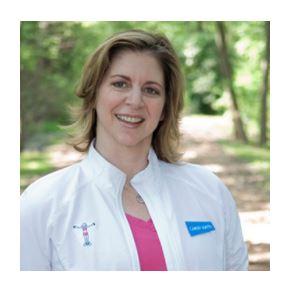If you’re fixated on the end result of weight loss, chances are you’re trying to control or force your way to an outcome. This is not changing. True change has no sense of urgency, competition or any other artificial impetus. It’s the cumulative effect of your choices over time that builds character and feels seamless when you look back at your choices. This article is the fourth and final in a series that maps out how change happens.
Progress indicates change
Inherent to change is a sense of progress and this will be most apparent in how flexible and adaptable you are in your growth process. Flexibility is being pliable in your perceptions and approach. Adaptability is being able to recognize and adjust to new conditions. Hint: perfectionism limits both of these.
You develop flexibility through a continuous cycle of learning, action, and evaluation. Many people mistakenly think that learning new information equates to growth. This only equates to a shelf full of self-help books. You need to apply what you’re learning by taking action in your life. In so doing, you’ll find some of your efforts work and some of them don’t. If you’re fixated on results, you’ll keep tightening your control, repeating the same action and expecting different results. This is a common trap people fall into so it’s important to pause and evaluate your outcomes (your real growth) each time. Evaluation creates an iterative process, where your output becomes your new input, so even the slightest shifts can give you a sense of progress and eventually produce significant change.
Adaptability evolves from an on-going cycle of witnessing, differentiating and integrating. Witnessing means noticing the choices you’re making but not layering them with judgment. Differentiating involves consciously registering the contrasts between your choices. Integrating is about combining those choices you want into your sense of self. Collectively, these are the most challenging aspects of change because even as you’re trying to solidify new habits, the infinite variables of your life are always changing. If you’re trying to control or force an outcome, you will seriously underestimate how long this deepening process really takes. It’s true you can establish a new habit in about 3 weeks but choosing this new habit with consistency over time requires far more practice — at least 6 months and sometimes years, in fact!
Practice makes progress
Practice is in the doing. Doing is what creates experiences. And the quality of your experiences contributes to your progress. For example, intellectualizing keeps you in the realm of theory, where you never actually experience what your choices FEEL like; attaining keeps you focused on what’s next, where you’re always limiting or foregoing your experience IN THE MOMENT.
Valuing what your choices feel like in the moment is the qualitative difference between an ignorant or elegant simplicity in your efforts; it’s the difference between a gross or subtle understanding of change. When you value your experiences in this way, you’ll have greater trust in your essential nature, allowing you to take your practice in any direction. Two steps forward and one step back will no longer deter you because you’ll realize that all of your experiences are informing your efforts and understanding.
As you’re accumulating these experiences, it’s necessary to test what you’re being modeled and taught by others. You need some form of teaching to be able to study yourself but always remember that teaching can only offer clarity and explanation. You are the expert in your life and only you can decide what you want to incorporate into your own growth process. Truth be told, that’s all resistance really is — an indicator that you haven’t found a way to make something your own yet.
We acquire new information long before we practice it or own it so be kind with yourself. We respond best when change is incorporated gradually and incrementally, even imperceptibly, where it simply becomes the current expression of who we are. When you’re able to refer back to an earlier time and memory of yourself as the “old me” — not because your Healthy Body looks different but because you’ve become a wiser, gentler version of yourself — that’s when you can be confident change has truly taken place.



